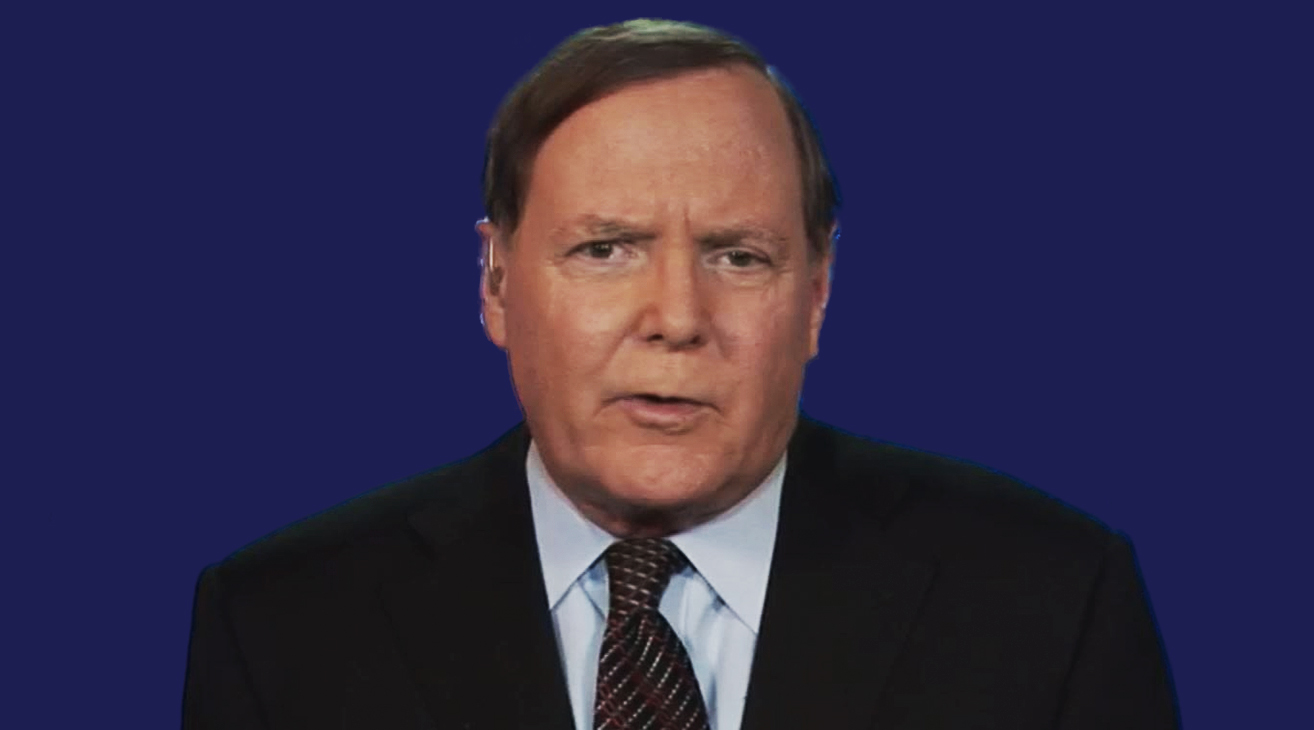by Franklin Templeton Investments blog, Franklin Templeton Investments
The Digest
Global equities were mixed last week as investors looked towards the Federal Reserve’s (Fed’s) annual economic symposium at Jackson Hole in the US state of Wyoming. Chairman Jerome Powell, members of the Federal Open Market Committee (FOMC) and economists were meeting at a resort, whilst markets awaited any commentary which would allude to future interest-rate changes.
US-China trade wars also rumble on, with both China and the United States announcing retaliatory tariffs. In Europe, the focus was on Brexit and the rhetoric from Prime Minister Boris Johnson’s counterparties around the likelihood of him being able to renegotiate a new Brexit deal.
Also, Italian politics remained at the forefront after Prime Minister Giuseppe Conte resigned and fresh elections look likely. Trading volumes were poor all week in the equity markets, which ended mixed last week across the globe. The MSCI Asia Pacific Index was up 1.1%, while the Eurostoxx 600 Index was up 0.5% and the S&P 500 Index was down 1% amid a downturn on Friday during the North American trading day.1
Macron and Merkel Offer Glimmer of Hope
As we know, market sentiment around UK assets has been increasingly cautious in recent months, thanks to the heightened likelihood of a no-deal Brexit. Last week, there was some respite, however, with sterling getting a small boost and domestically-exposed stocks benefitting.
It is all relative, of course, but last week we saw some more positive comments from French President Emmanuel Macron and German Chancellor Angela Merkel as they stepped away from the blanket European Union (EU) refusal to look again at the withdrawal agreement. Macron said that amendments to the agreement (and nature of the contentious Northern Irish backstop) were possible, although he did add that the backstop itself was indispensable.
Macron urged Boris Johnson to set out his proposed alternatives as soon as possible. He said he would like visibility on the UK government’s proposals within a month, echoing language Merkel used as she had highlighted how little time there was before the UK’s planned exit date of October 31.
Johnson returned to London on Thursday evening and ordered his UK ministers to draw up a new Irish border policy, hoping to avoid the UK’s departure at the end of October without a deal.
The Group of Seven (G7) summit commenced over the weekend, with the big Brexit moment being a sit-down meeting between Johnson and EU Council President Donald Tusk on Sunday. In the lead-up to the meeting, both men had called each other “Mr. No Deal”.
Tusk noted he was “willing to listen” but was not willing to co-operate in preparing for a no-deal exit. Johnson has said the UK will no longer legally owe the £39bn divorce bill should the country leave the EU without a deal, with many UK media outlets suggesting the bill could be less than £10bn. We expect further details about this meeting to come out in the coming days.
Overseas Investors Go Bargain Hunting
Despite the small pop towards the end of last week, the pound remains subdued. An emerging theme, despite the uncertainty, is the attractiveness of UK companies as merger-and-acquisition targets for overseas investors amidst the weaker currency and subdued equity markets.
This year overseas investors have made a string of notable acquisitions. These include Inmarsat, Merlin Entertainment, Cobham Greene King and Peppa Pig creators Entertainment One. It remains to be seen who will be bid for next, although the window for bargain hunting is at danger of closing at any point should a Brexit deal be announced.
What Next?
- UK Parliament is currently on recess, returning on September 3.
- The UK opposition party, Labour, confirmed it would try to bring down the government in September with a no-confidence vote, while other cross-party members of parliament (MPs) are working on plans to stop a no-deal Brexit if Johnson loses a confidence vote.
- Johnson said he would hold a general election “days after” the UK leaves the EU on October 31 if he is forced to go to the polls (should a no-confidence vote succeed against his government).
- In addition, some politicians continue to push for a second referendum on EU membership and, with all the moving parts, this cannot be taken off the table.
Will Italy be Heading to the Polls?
Italian politics is, if nothing else, consistent.
The unlikely Five Star-Northern League coalition collapsed after a 14-month reign, as Conte resigned on Tuesday of last week following a challenge from Northern League’s Matteo Salvini.
Salvini is keen for fresh elections as he is riding high in the polls and sees this as an opportunity for his party to form a government on its own. However, the veteran President, Sergio Mattarella, will be keen to avoid fresh elections as Italy needs to submit budget plans to the European Commission by October 15. With that, he has spoken to all the main parties who are exploring fresh coalition possibilities.
A Five Star/Democratic Party (centre left) coalition is one possibility, but not easy as they have feuded bitterly in the past. The president has given parties a deadline of Tuesday, August 27 to come up with a potential government.
Last Week
Europe
European equities were muted last week on poor volume as investors looked towards the G7 meeting as well as the Fed symposium at the end of the week. Italian equities outperformed the other major indexes, whilst the UK’s FTSE 100 Index lagged and the pound strengthened.
There was a mixed feel to sectors, with Travel and Leisure the week’s outperformer, whilst the banks underperformed amid a lower-yield environment. Utilities and telecomms also lagged.
The week started upbeat after a report the previous Friday noting Germany could increase fiscal spending by approximately €50bn should the country find itself facing an economic crisis. There was also a report in Der Spiegel which suggested Germany was willing to run a budget deficit should the economy enter a recession.
On Wednesday, investors rejected the world’s first 30-year bond (priced at -0.11%) as Germany failed to hit its €2bn target, with only €800m worth of demand.
In terms of data, eurozone Composite Purchasing Managers Indices (PMIs) came in ahead of estimates; however, manufacturing remained well in contraction. There was also a notable drop in economic confidence regarding the outlook for the next 12 months in Europe.
United States
US equities were on track for their first weekly gain in a month until Friday’s selloff, which came on the heels of a re-escalation in trade-war rhetoric.
Powell’s speech at Jackson Hole was the focus for the week, with market volumes very subdued in the lead-up to the event. Utilities stocks outperformed in the United States, whilst materials lagged on the week given a pullback in metals prices. The US dollar was also weaker.
The market’s decline on Friday came after China announced 5-10% tariffs on US$75 billion worth of US goods, which was in retaliation to the August 15th announcement from the United States’ introduction of a further 10% tariff on US$300 billion of Chinese goods.
The new Chinese tariffs on US goods would commence in two batches, the first on September 1 and the second on December 15. Also, China announced it would restore the 25% tariff on US auto-related imports.
In response, the United States raised the existing 25% tariff on US$250 billion in Chinese goods to 30% and the 10% tariffs noted above to 15%. In a tweet, US President Donald Trump also encouraged US companies to start looking for alternatives to Chinese business.
The tit-for-tat nature of the trade war shows no signs of abating and August has seen a re-escalation.
Sticking to usual form, markets were seemingly given a shot in the arm as we began this week on a headline noting Trump had said China wanted to restart trade talks. As has been standard with these types of headlines, the proof will be in the pudding as all the signs from Friday suggest China, with no policy adjustments and a weak yuan, seem willing to ride this tit-for-tat situation out.
Trump is in attendance at the G7 summit in Biarritz this week, and we expect these headlines to continue in the coming days. Picking through the rhetoric in order to find any kind of substance will be the challenge facing investors. Trump is due to give a joint press conference with French President Macron on Monday.
Moving back to the Fed’s meeting at Jackson Hole, in Powell’s speech on Friday, he reiterated his previous dovish stance, saying that the Fed would act as appropriate to sustain the US economic expansion. The market did pare back expectations for a 50 basis point (bp) interest-rate cut in September, however, with economists now largely pricing in a 25bp cut.2
Also, the FOMC notes from earlier in the week showed diverging opinions on potential rate cuts, with two members voting against a rate cut in July, whilst two members were seeking a 50bp cut to combat stubbornly low inflation.
In macro data, US manufacturing PMIs moved into contraction territory at 49.9. New orders and export sales slowed to their worst pace in 10 years. It was also reported that economic outlook for the next 12 months was also at its worst in a decade.
Asia Pacific
Last week was positive for Asian equity markets. However, we need to keep in mind that the news of fresh Chinese tariffs on US products and the subsequent series of angry Trump tweets all followed the close of the Asian markets last week.
Last week there was little macro data out and the protests in Hong Kong appeared to be peaceful, though there was more violence this weekend.
In Japan, the yen had weakened a little last week, which helped Japanese equities find some support. On Friday, we saw a July inflation figure came in below consensus estimates, with the consumer price index at 0.5% (year-over-year), lending weight to the view the Bank of Japan will likely continue with the ultra-easy monetary policy.
We would note that with the flare-up in trade-war tensions over the weekend, the yen has strengthened again, and is creeping towards levels versus the US dollar that we have not seen for some time. This is clearly thanks to the yen’s “safe haven” status among investors.
South Korean markets saw more muted gains last week as geopolitical tensions rose again when the Korean government announced it will not renew an intelligence-sharing pact with Japan.
Week Ahead
Politics
- At the start of the week, the focus is on the G7 summit. Trade wars, Brexit and Italian politics are at the forefront of investors’ minds so, in our view, any commentary around these will likely garner the most interest.
Monetary Policy
- We have speakers from the Fed (Friday), the European Central Bank and Bank of England (Tuesday)
Macro
- In Europe, we get a report on the German business climate on Monday, German gross domestic product (GDP) data on Tuesday; German and Italian consumer confidence on Wednesday; French GDP and eurozone consumer confidence on Thursday; eurozone CPIs and Italian GDP on Friday.
- In the United States, a report on durable goods orders comes out on Monday, and consumer confidence on Tuesday.
- In Asia, a Chinese industrial profits report is released on Tuesday, and Japan CPIs on Friday.
Holidays
Views You Can Use
Insight from Our Investment Professionals
Three Reasons to Consider Dividend Growers
As global economic growth slows and US-China trade tensions drag on, Franklin Equity Group’s Nick Getaz and Matt Quinlan see signs that some investors may be turning their attention away from the high-growth stocks that have been popular during the recent US equity bull market. Against this backdrop, they explain why they think investors might want to consider “rising dividends companies,” or resilient companies with track records of dividend growth, during various market environments. Read More.
Central Bank Easing in Focus in July
The US Federal Reserve’s recent interest rate cut will likely be positive for emerging markets overall, given the importance of the US economy as a growth driver, according to our emerging markets equity team. The team shares its view of this and other events shaping emerging markets today. Read More.
Why European Fixed Income Can Still Have Value Even with Negative Yield
Amid much discussion of the inversion of the US yield curve, there’s been relatively little attention paid to the situation in Europe. John Beck, Franklin Templeton’s Director of Fixed Income, London, explains the reasons for a likely continued flattening of the yield curve in Europe are very different from the drivers on the other side of the Atlantic. And, as most commentators brace for further interest rate cuts, Beck argues there’s still value to be found in European fixed income, even with negative yields. Read More.
US Market Volatility and Sleepless Summertime Nights
The summer of 2019 has given equity investors a lot of things to worry about. Yet, Franklin Equity Group’s Grant Bowers says the health of the US equity bull market shouldn’t be one of them—at least not now. He discusses the biggest growth driver for both the US and global economy and explains why he likes the long-term prospects for select companies in the health care and technology sectors. Read More.
For timely investing tidbits, follow us on Twitter @FTI_Global and on LinkedIn.
Important Legal Information
This article reflects the analysis and opinions of Franklin Templeton’s European Trading Desk as of August 26, 2019, and may vary from the analysis and opinions of other investment teams, platforms, portfolio managers or strategies at Franklin Templeton. Because market and economic conditions are often subject to rapid change, the analysis and opinions provided may change without notice. An assessment of a particular country, market, region, security, investment or strategy is not intended as an investment recommendation, nor does it constitute investment advice. Statements of fact are from sources considered reliable, but no representation or warranty is made as to their completeness or accuracy. This article does not provide a complete analysis of every material fact regarding any country, region, market, industry or security.
Nothing in this document may be relied upon as investment advice or an investment recommendation.The companies named herein are used solely for illustrative purposes; any investment may or may not be currently held by any portfolio advised by Franklin Templeton.
Data from third-party sources may have been used in the preparation of this material and Franklin Templeton (“FT”) has not independently verified, validated or audited such data. FT accepts no liability whatsoever for any loss arising from use of this information and reliance upon the comments, opinions and analyses in the material is at the sole discretion of the user. Products, services and information may not be available in all jurisdictions and are offered by FT affiliates and/or their distributors as local laws and regulations permit. Please consult your own professional adviser for further information on availability of products and services in your jurisdiction.
What Are the Risks?
All investments involve risk, including possible loss of principal. The value of investments can go down as well as up, and investors may not get back the full amount invested. Stock prices fluctuate, sometimes rapidly and dramatically, due to factors affecting individual companies, particular industries or sectors, or general market conditions. Bond prices generally move in the opposite direction of interest rates. Thus, as prices of bonds in an investment portfolio adjust to a rise in interest rates, the value of the portfolio may decline. Investments in foreign securities involve special risks including currency fluctuations, economic instability and political developments. Investments in developing markets involve heightened risks related to the same factors, in addition to those associated with their relatively small size and lesser liquidity.
Past performance is not an indicator or guarantee of future performance.
Links to External Sites
Franklin Templeton Investments is not responsible for the content of external websites.
The inclusion of a link to an external website should not be understood to be an endorsement of that website or the site’s owners (or their products/services).
Links can take you to third-party sites/media with information and services not reviewed or endorsed by us. We urge you to review the privacy, security, terms of use, and other policies of each site you visit as we have no control over, and assume no responsibility or liability for them.
1. Indices are unmanaged and one cannot directly invest in them. They do not include fees, expenses or sales charges. Past performance is not an indicator or guarantee of future results.
2. A basis point is a unit of measurement. One basis point is equal to 0.01%.
This post was first published at the official blog of Franklin Templeton Investments.












